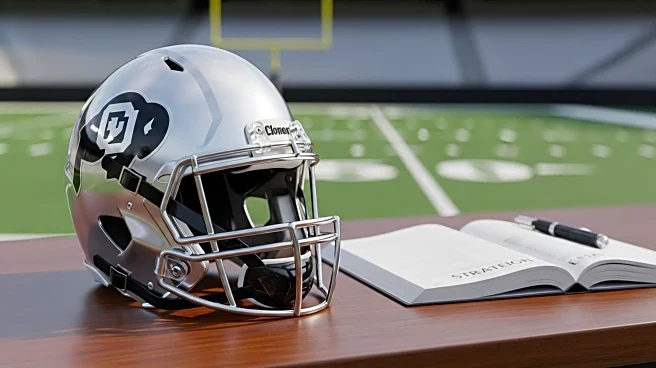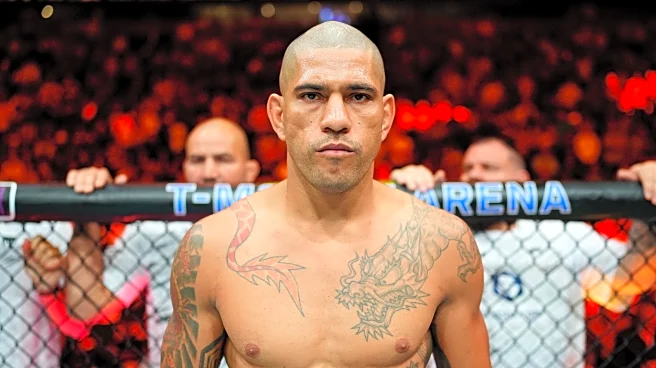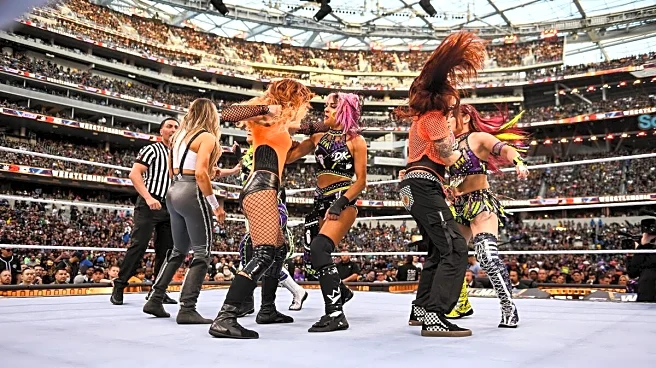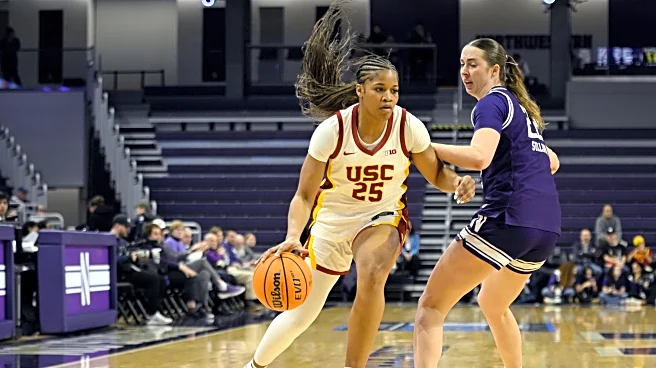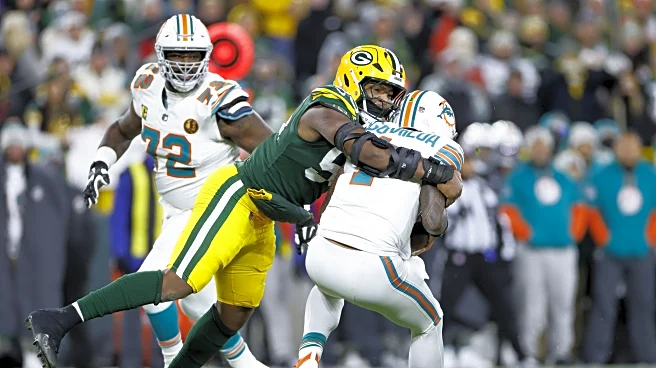What's Happening?
Deion Sanders, head coach of the Colorado Buffaloes football team, is at a crossroads regarding the team's quarterback position. Through the first two Power 4 matchups of the 2025 season, Sanders has tested both veteran quarterbacks, Kaidon Salter and Ryan Staub, but neither has solidified their role as the starter. Salter, who transferred from Liberty Flames, started the season opener against Georgia Tech Yellow Jackets, resulting in a 27-20 loss. Staub was given the opportunity in the subsequent game against the Houston Cougars, which ended in a 36-20 defeat. Despite Staub's multiple interceptions, he appeared more comfortable in the offense. Offensive coordinator Pat Shurmur and Sanders are currently considering only Salter and Staub for the starting position, as freshman Julian Lewis is deemed too inexperienced.
Why It's Important?
The decision on the starting quarterback is crucial for the Colorado Buffaloes as it could significantly impact their performance in the ongoing season. The choice between Salter and Staub could determine the team's offensive strategy and overall success. Additionally, the handling of this situation may affect team morale and the future of the program, especially considering the potential for players like Julian Lewis to enter the Transfer Portal if dissatisfied. The outcome of this decision could also influence Sanders' reputation and effectiveness as a coach, particularly in managing high-stakes team dynamics.
What's Next?
Coach Sanders must decide whether to continue with Ryan Staub or revert to Kaidon Salter for the upcoming game against Wyoming. This decision will likely be influenced by the performance of both quarterbacks in practice and their ability to execute the team's offensive strategy. The choice could also affect the team's recruitment and retention of key players, as well as the overall direction of the program under Sanders' leadership.
Beyond the Headlines
The quarterback dilemma highlights broader issues within the Colorado Buffaloes' program, such as the challenges of managing player expectations and the impact of NIL deals on college sports dynamics. The situation underscores the importance of strategic planning and player development in collegiate athletics, as well as the potential consequences of high-profile coaching decisions.
